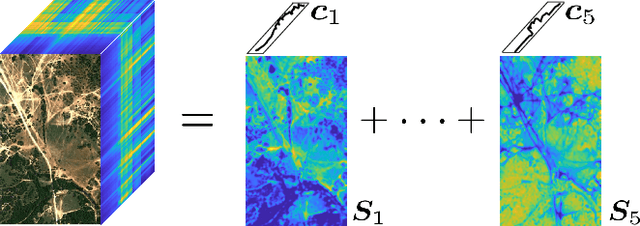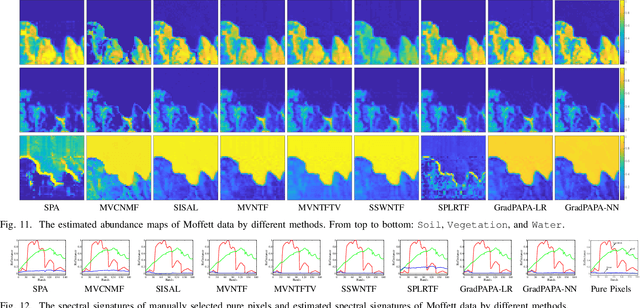Fast and Structured Block-Term Tensor Decomposition For Hyperspectral Unmixing
Paper and Code
May 08, 2022



The block-term tensor decomposition model with multilinear rank-$(L_r,L_r,1)$ terms (or, the "LL1 tensor decomposition" in short) offers a valuable alternative for hyperspectral unmixing (HU) under the linear mixture model. Particularly, the LL1 decomposition ensures the endmember/abundance identifiability in scenarios where such guarantees are not supported by the classic matrix factorization (MF) approaches. However, existing LL1-based HU algorithms use a three-factor parameterization of the tensor (i.e., the hyperspectral image cube), which leads to a number of challenges including high per-iteration complexity, slow convergence, and difficulties in incorporating structural prior information. This work puts forth an LL1 tensor decomposition-based HU algorithm that uses a constrained two-factor re-parameterization of the tensor data. As a consequence, a two-block alternating gradient projection (GP)-based LL1 algorithm is proposed for HU. With carefully designed projection solvers, the GP algorithm enjoys a relatively low per-iteration complexity. Like in MF-based HU, the factors under our parameterization correspond to the endmembers and abundances. Thus, the proposed framework is natural to incorporate physics-motivated priors that arise in HU. The proposed algorithm often attains orders-of-magnitude speedup and substantial HU performance gains compared to the existing three-factor parameterization-based HU algorithms.
 Add to Chrome
Add to Chrome Add to Firefox
Add to Firefox Add to Edge
Add to Edge